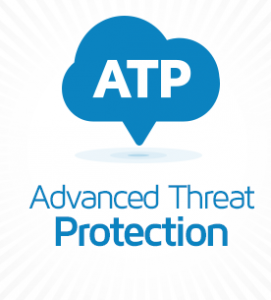Companies in all industries and of all sizes are targeted by cybercriminals who want to breach their network and steal confidential information. This can lead to damaging financial and reputational consequences for a business.
If a hacker is able to successfully compromise your network, their main goal is to steal money and sensitive information. Fraud typically can’t be accomplished in one day, so the first thing the cybercriminals do is set up secure access to the network that allows continuous access.
The hackers will then attempt to gather administrative credentials that give them control to the network resources they need. They’ll gain secure access into the corporate servers where the important data is hosted.
Once cybercriminals have admin-level access and reduced security measures, they’re game to do just about anything they choose, leaving your business, employee and customer information vulnerable.

How do hackers use email to breach networks?
It seems like data breaches of huge corporations are constantly happening. Not all breaches come through email, some begin when an employee opens a malicious website, physical theft from customers in-store, phone calls and malware. However, email risks are a huge issue that owners and managers need to control. There are two main ways a cybercriminal can gain access to your network through email attempts.
Phishing
Phishing is the most likely way a cybercriminal will attempt to breach your network. These are emails that appear to be legitimate requests from banks, subscription sites and any other well-known businesses the email recipient may use.
Hackers typically use these emails to steal confidential information such as passwords and account details while attempting to breach your business’ important data. These emails appear sincere and try to create a sense of urgency, so the user doesn’t think clearly and falls for the scam. One such email could be, “You’ve been locked out of your account, click to reset your password.”
If an employee clicks the link to “reset their password” they’re laying the foundation the hackers need to breach your network.
Spoofing
Spoofing is a type of phishing scam. Most employees are aware of the telltale signs of email phishing attempts; watch for misspelled words, don’t open emails from people you don’t know, don’t open attachments, and especially don’t send sensitive information to people you don’t know, but they may unwittingly fall for a spoofing email.
Spoofing is an email that appears to be sent from a high-ranking official within the company. Hackers will research your company to find names and email addresses of the CEO or management team. They’ll pair that with the use of corporate logos to trick your employees into clicking links, attachments or sending confidential information.
In most cases, hackers will spoof the ‘from’ name to look like it is coming from the high-ranking employees and use an email address that mimics that of the real one with your custom domain. This makes it tricky for an employee to recognize they are being hacked, which can lead to them compromising the network.
What you can do to keep your network safe from email phishing attempts
 It is important to keep your network safe, so your business reputation and finances don’t collapse under a network breach. There are safeguards you can use to prevent these data breaches from happening, especially the use of Managed Office 365 with Advanced Threat Protection (ATP).
It is important to keep your network safe, so your business reputation and finances don’t collapse under a network breach. There are safeguards you can use to prevent these data breaches from happening, especially the use of Managed Office 365 with Advanced Threat Protection (ATP).
ATP can help detect attempts to impersonate internal users and custom domains, scan links and provide verification of URLs, also checking email attachments for malicious content.
Businesses must develop a strategic plan to protect their customers and employees. If you would like to know more about ATP, and how it can safeguard your business from user error and breaches, join our webinar; June 24, 2020, at 11:00 a.m.
Save your spot now.
